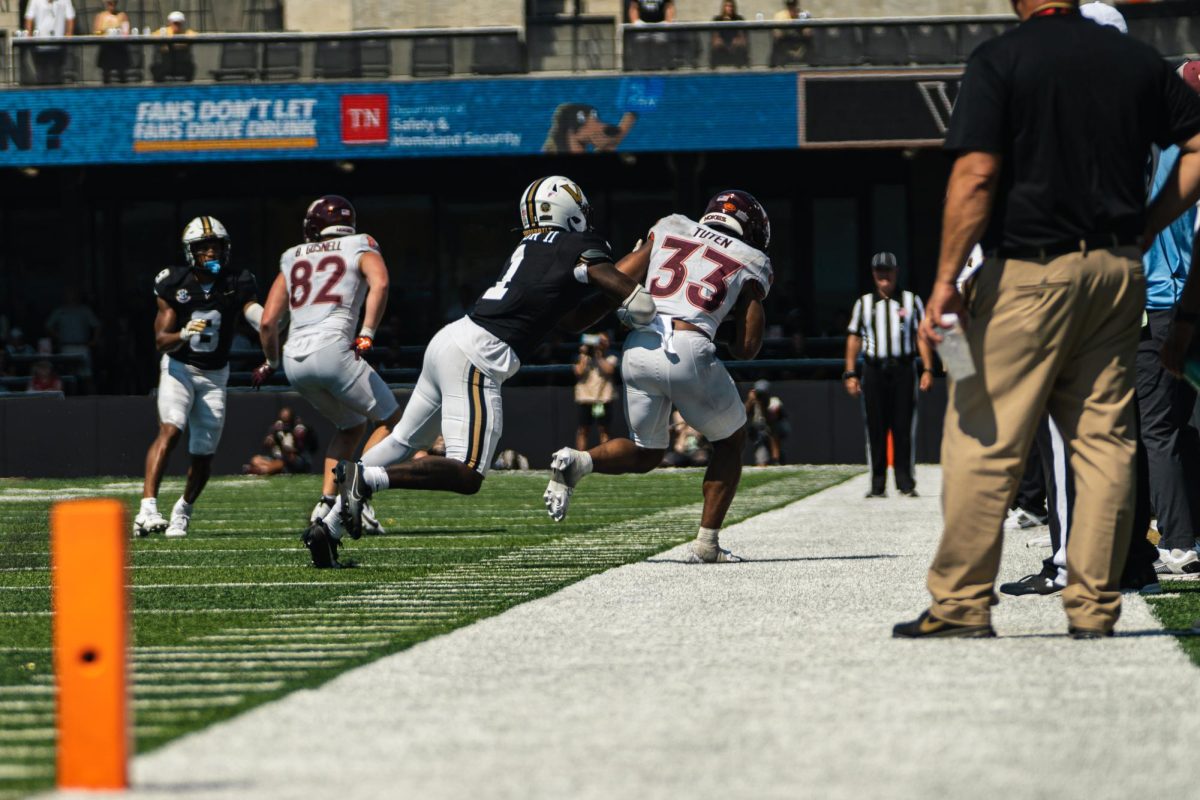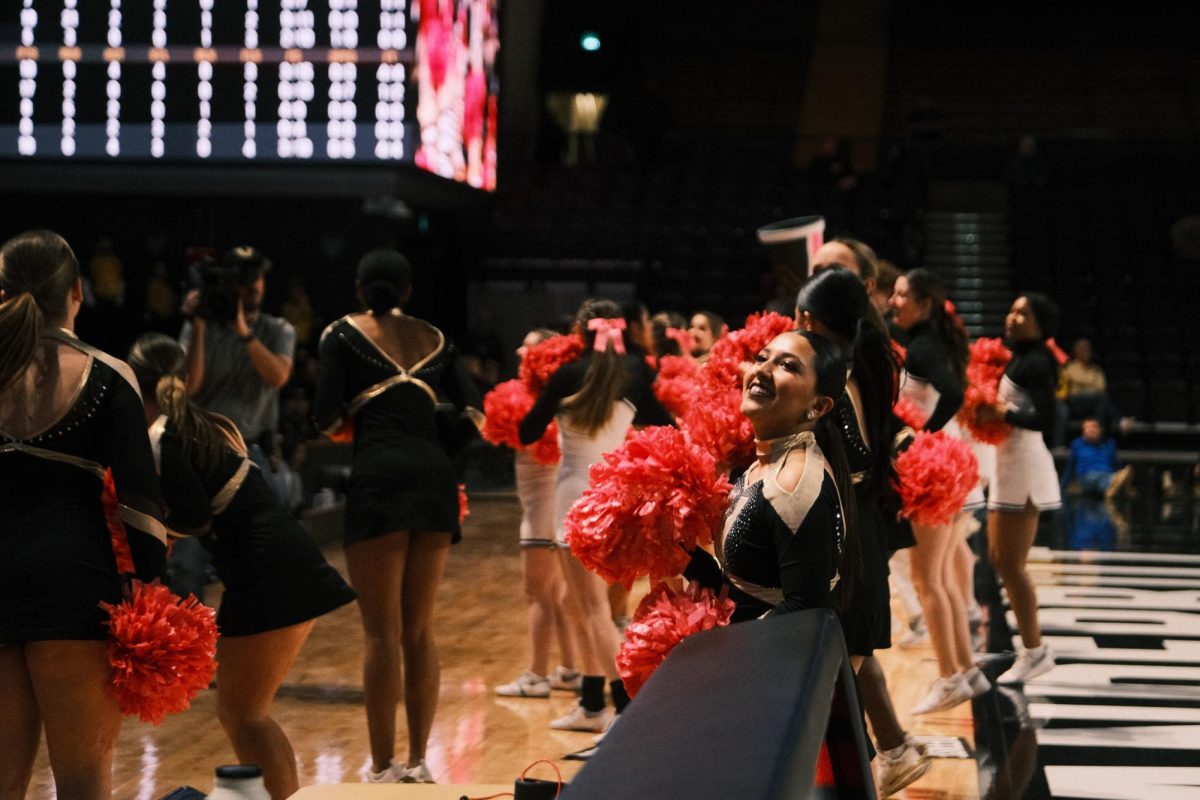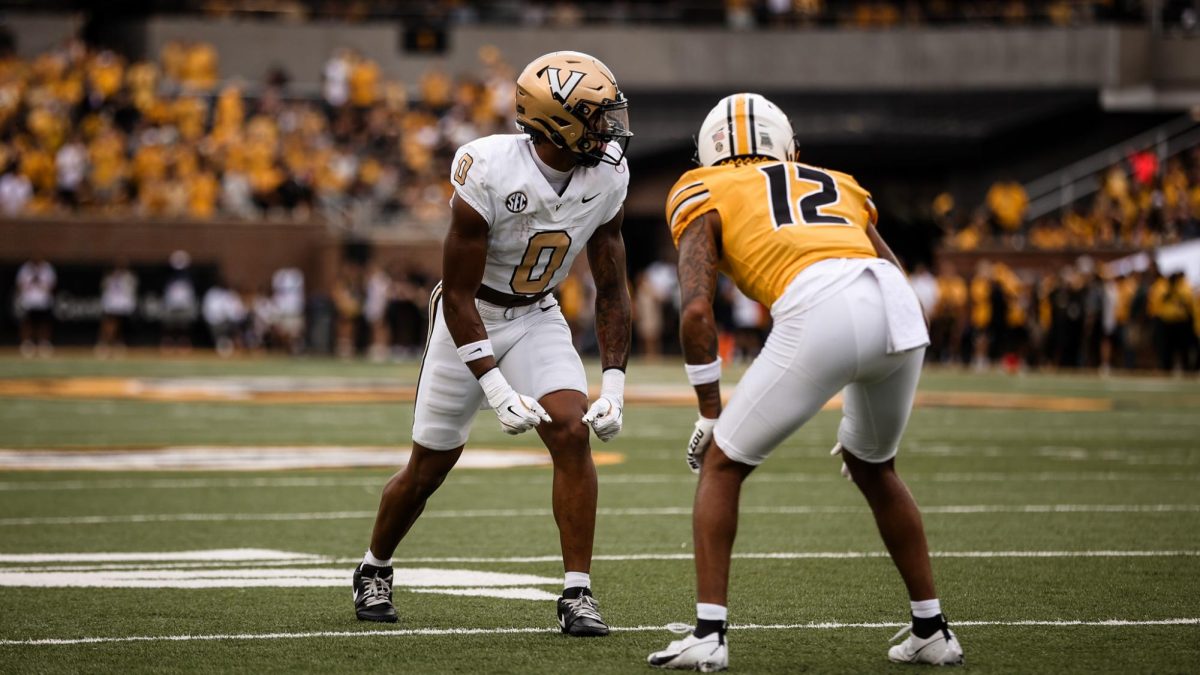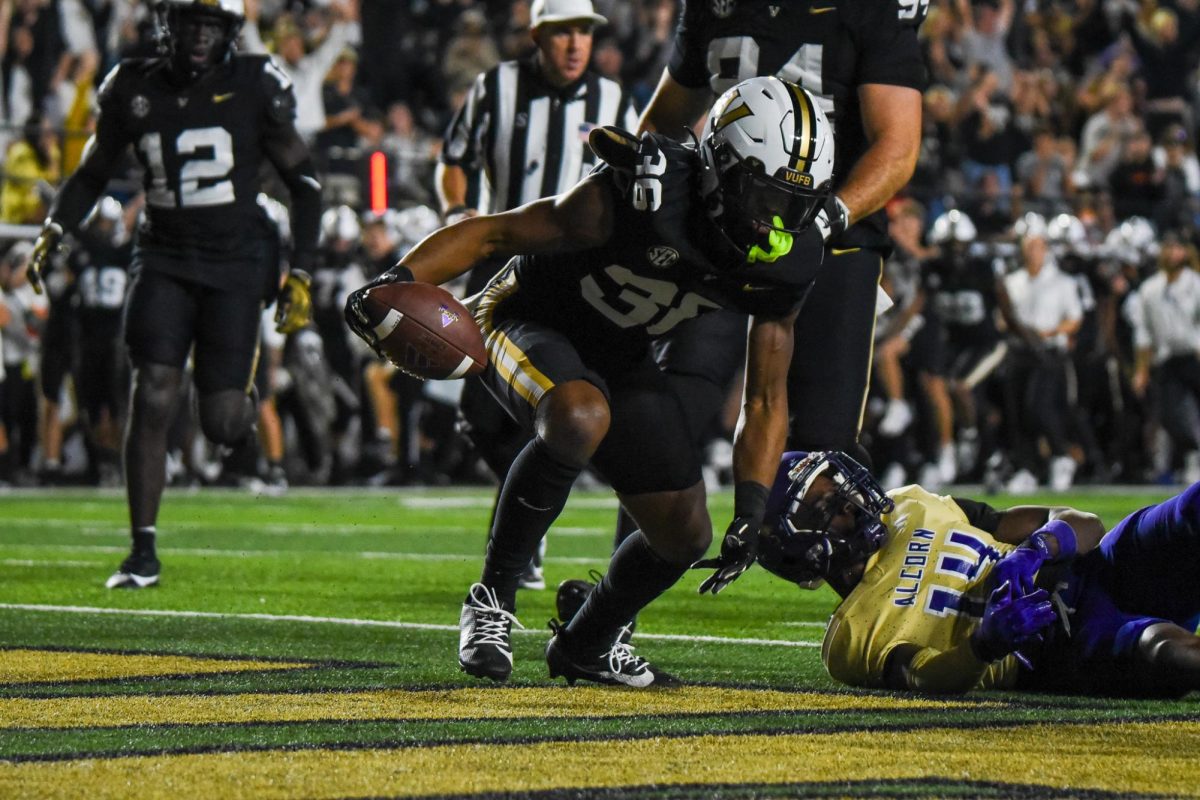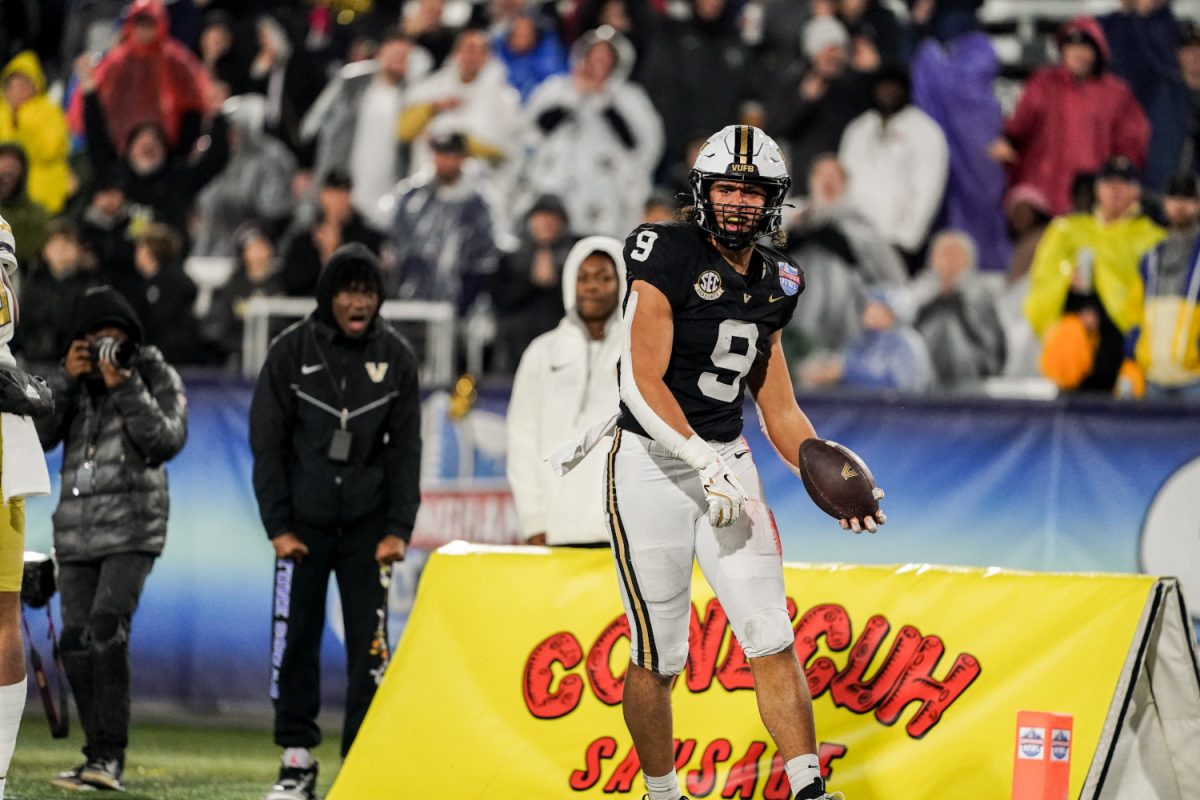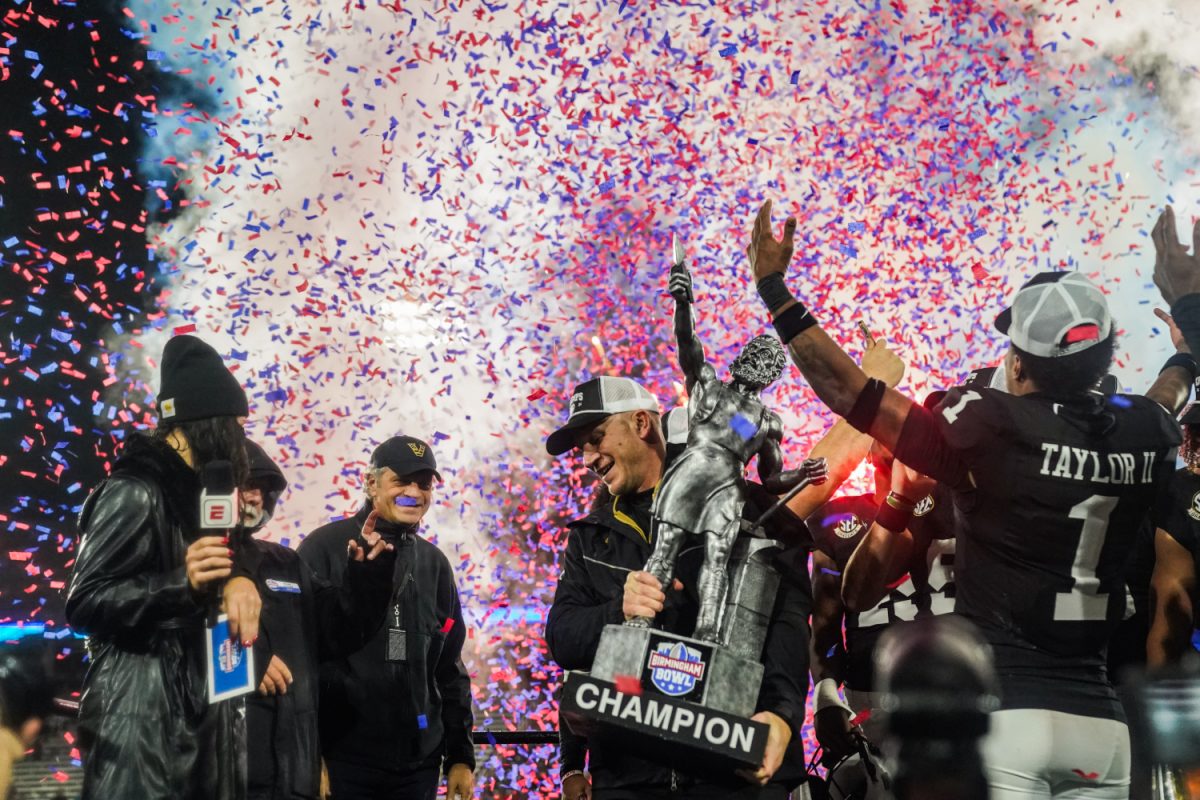Vanderbilt Football’s honeymoon phase is over. Hopes of starting the season 3-0 were dashed as the Commodores fell to Georgia State in Atlanta last Saturday. After Vanderbilt blanked Alcorn State in a historic blowout, many fans expected to see a similar level of defensive domination this past weekend. Instead, the matchup on Saturday night looked closer to four quarters of the disastrous second half of the Commodores’ Virginia Tech opener. With head coach Clark Lea at the helm of the defense, the Black and Gold’s front seven and secondary looked outplayed on every drive. Georgia State tore through the secondary and trifled the Commodore run defense. The lack of discipline — namely in the number of penalties it committed — also contributed to the loss last Saturday.
Fans riding the high after the Alcorn State stomping may have forgotten how poorly Vanderbilt’s defense played in the second half against Virginia Tech. After keeping the Hokies to only 86 yards and 3 points in the first half, the Commodores allowed an astounding 311 yards of offense and 24 points in the second. The team not only blew a 14-point lead but even found itself trailing by a touchdown late in the fourth. The offense was able to eke out a touchdown against Virginia Tech to tie the game, and the defense forced a clutch three-and-out to send it to overtime. Vanderbilt’s run defense looked the worst it has all season against the Panthers.
Looking back at the Virginia Tech and Alcorn State matchups, when Lea’s defense held the teams to 75 and 20 rushing yards, respectively, an ineffective run defense from Vanderbilt in Week Three seems uncharacteristic. However, the second half of the Virginia Tech game saw more than a 100% increase in rushing yards per attempt — going from 1.5 yards to 3.3. This dramatic increase is attributed to Vanderbilt’s defense’s inability to stop big runs in the second half. All three Hokie rushes of 10 or more yards occurred in the game’s final 30 minutes.
This defensive weakness was on full display again last Saturday; against Georgia State, Vanderbilt allowed more rushing yards (157) than its previous two games combined (95). In 34 rushing attempts, the Panthers accumulated 157 rushing yards resulting in 4.6 yards per attempt. Of those 157 rushing yards, 93 of them came from five plays. In previous weeks, Diego Pavia and Sedrick Alexander were the best runners on both sidelines, but this week, Georgia State’s Fredrick Brock carved his way through the Commodore defensive line, amassing 96 yards on 15 carries.
Additionally, the defensive line put very little pressure on the quarterback, sacking Veilleux once and only pressuring him three times. This inability to get to the pocket resulted in Vanderbilt’s defense allowing chunks of important yardage, including an 18-yard quarterback keeper that scored early in the 3rd quarter. However, the weak run defense was not Vanderbilt’s only predictable shortcoming — the secondary has struggled all year.
The first half of the Virginia Tech game saw Vanderbilt’s secondary hold the team to 67 passing yards. An impressive performance — if the secondary’s flaws were not revealed in the second half when the Commodores allowed the Hokies to accrue 255 passing yards and 2 passing touchdowns. In a sickening case of deja vu, the Commodores mirrored a similar failure to stop the pass against the Panthers this past weekend. Vanderbilt forfeited 8 plays of 10-plus yards, which totaled 160 yards. Velleiux ended the day with a completion percentage of 63% and an average yards per completion of 10.3 yards. Additionally, the Commodores struggled to get into the passing lane, as they only recorded two pass breakups.
Two notable passing moments came when Georgia State receiver Ted Hurst finessed senior cornerbacks Tyson Russell and Kolbey Taylor for two different touchdowns. The first was a 33-yard reception in the second quarter, while the second was the 25-yard walk-off touchdown that sealed the Commodores’ loss. Beyond disheartening passing and rushing defensive statistics, Vanderbilt committed numerous other critical mistakes — penalties being the largest of them.
Vanderbilt has been an undisciplined team so far this season, as its play on both sides of the ball has been marred by penalties. The Commodores gave up four defensive penalties for 50 yards against the Panthers — the most prominent of which was a fourth-quarter targeting call on senior safety CJ Taylor. In the past two games, CJ Taylor was the most effective member of the secondary, recording eight solo tackles and one interception. Throughout the season, Vanderbilt’s defense has consistently given up undisciplined personal fouls. In the Virginia Tech game, it was an unnecessary roughness and roughing the passer call. Against Georgia State, Vanderbilt paid for a targeting call and another roughing of the passer call. It is not just that these are avoidable errors, but also the consistency of these penalties gives opposing offenses extra sets of downs to further exploit Vanderbilt’s defense.
After a go-ahead AJ Newberry touchdown with less than two minutes on the clock, Vanderbilt seemed poised for victory. Then, tragedy ensued. The defense collapsed and Georgia State in seven plays marched 75 yards downfield to score a game-winning touchdown in less than a minute. The game as a whole — especially the last-minute defensive meltdown — felt reminiscent of past years of Lea’s tenure.
The road only gets tougher from here, as Vanderbilt will face No. 7 Missouri on Sept. 21 to begin SEC play. Simply put, the defense must improve if Vanderbilt wants any chance at a bowl appearance.

